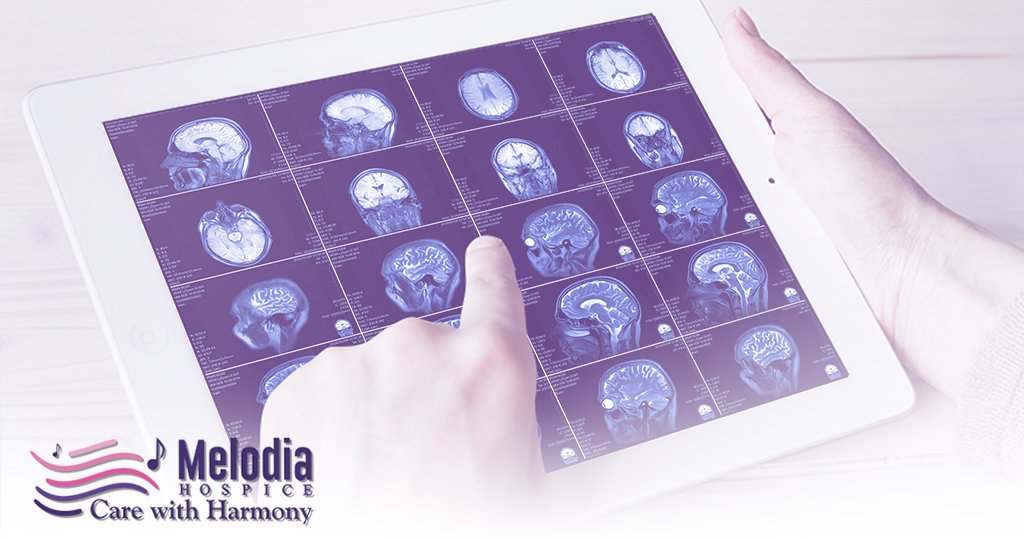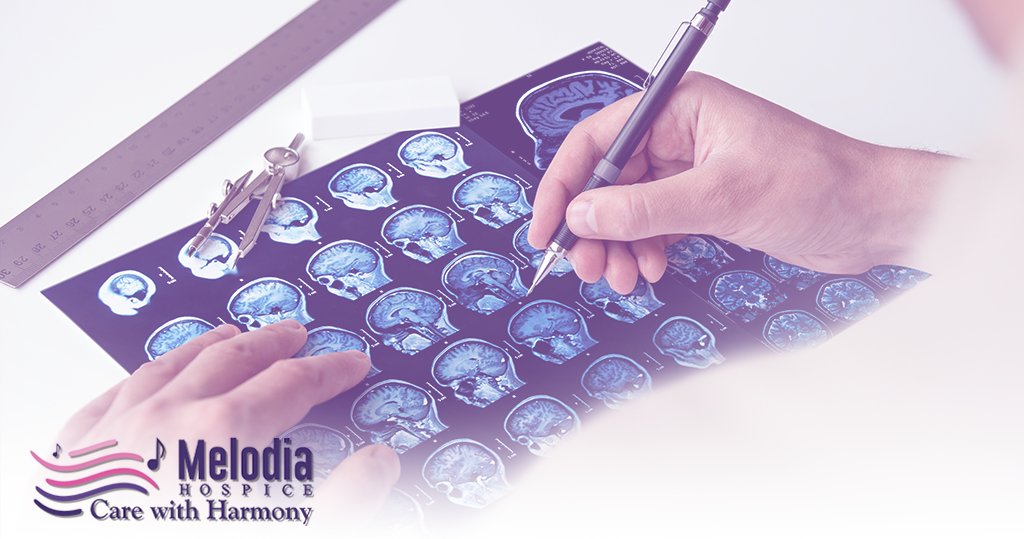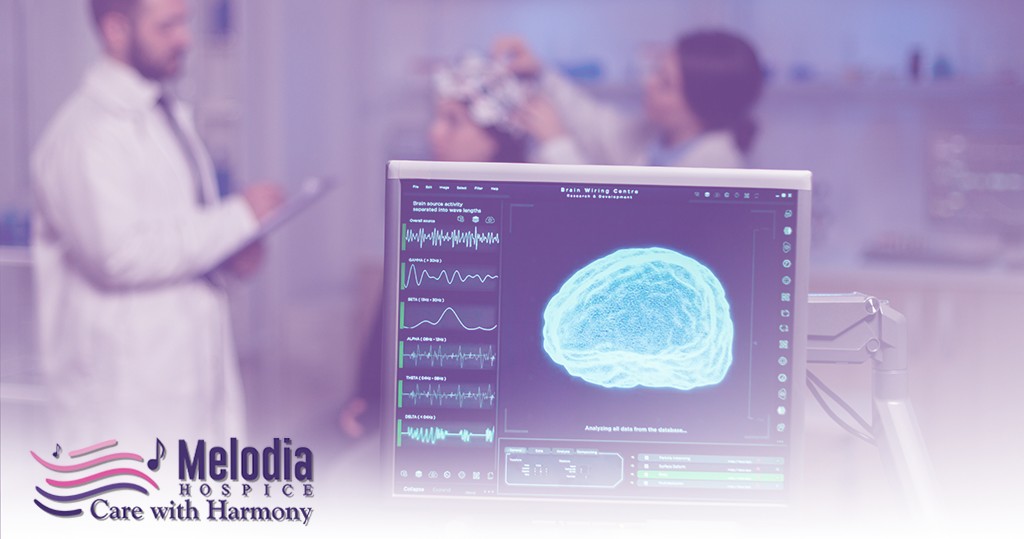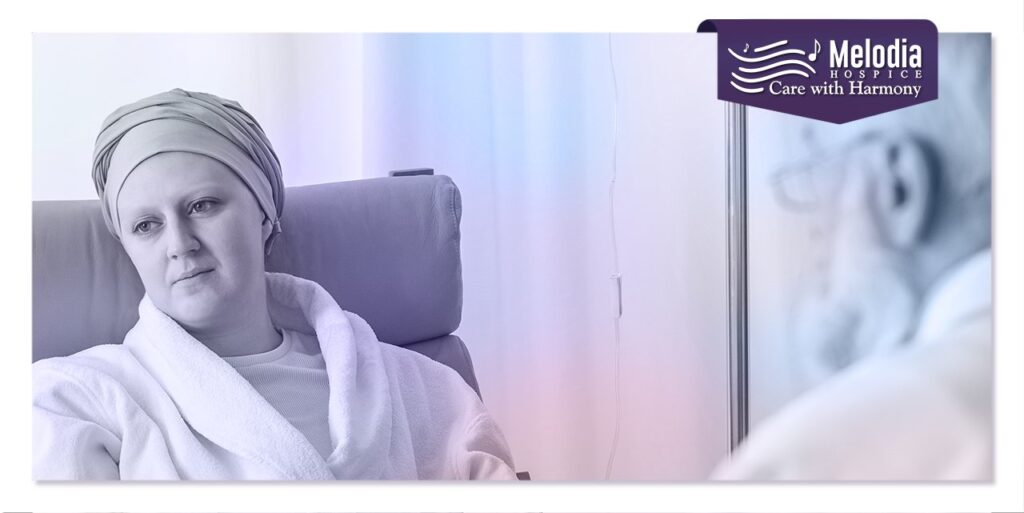People are increasingly opting for hospice care as they near the end of their lives. Melodia’s hospice care can be offered in a variety of settings, including the patient’s home, a nursing home, an assisted living facility, or an inpatient hospital. Certain disorders or major illnesses, such as Gliosarcoma, may become incurable at some point. Melodia hospice care is suitable for individuals in this predicament.
What Is Gliosarcoma?

Gliosarcoma is the most common malignancy of the central nervous system. This indicates that it originates in the brain or spinal cord. Gliosarcoma is a kind of glioma that is extremely rare. Gliosarcomas are cancers of the fourth grade. This indicates that they are cancerous fast-growing and malignant (cancerous).
Classification of Gliosarcoma

They are categorized into two types as primary or secondary:
Primary: Tumor discovered after a surgical procedure or a biopsy.
Secondary: The tumor develops following radiation therapy on a pre-existing glioma.
While treatments for high-grade brain tumors are improving, malignancies that start in the brain are frequently incurable. Although there are treatments that can help patients’ symptoms and extend their lives, brain cancer is a disease that often leads to death.
Tumor location, tumor kind, extent of tumor dissemination, genetic findings, patient age, and residual tumor after surgery, if resectable, are used to classify Gliosarcoma.
Prognosis Of Gliosarcoma

The rare high-grade malignant tumor Gliosarcoma has a poor prognosis. The average survival time for Gliosarcoma is 4 to 18.5 months. It would be quite rare for it to exceed 40 months. Intraventricular Gliosarcoma has a survival rate of fewer than 8 months.
Symptoms Of Gliosarcoma In End Of Life

Patients’ biggest worries as they approach the end stages of the disease are uncontrolled symptoms and a sense of burden. It is becoming increasingly apparent that patients benefit from both Melodia hospice End-of-life care and palliative care.
1.Increase Of Intracranial Pressure

Intracranial pressure rises as the tumor grows in patients with progressive brain tumors. One of the most commonly reported symptoms in the final weeks of patient’s life is drowsiness or loss of consciousness. Lethargy, bewilderment, and reversal of night/day are common early indicators of a lower state of consciousness. In the final week of life, drowsiness and lethargy tend to develop dramatically. In the end, the patient falls into a deep coma, which lasts a few days.
2.Servere Headaches

The frequency, intensity, and quality of headaches experienced by patients can vary. That headache is usually worse in the morning or at night due to skull pressure generated by brain tumors, and it can be made worse by bending over or coughing. All sorts of headaches, most typically dull, can be caused by the tumor itself and increased cerebral edema. Increased intracranial pressure and stress on sensitive tissues such as blood vessels and the upper nerve roots are thought to cause headaches. Increased intracranial pressure causes headache, which increases tumor size and accompanying swelling, making it a typical complaint in end-of-life patients.
3.Neurological Deficit Effect

Patients may develop symptoms relating to the location of a tumor in addition to the general symptoms of increased intracranial pressure headache, nausea, vomiting, and loss of consciousness. Unilateral motor weakness (particularly in the arm), sensory abnormalities, speech disorders, visual disorders, gait disorders, cognitive changes such as memory and behavioral impairments, and cranial nerve palsy are all examples of these. In the first few months of infancy, the intensity of symptoms tends to rise quickly.
4.Cognitive Changes

Patients may experience persistent and progressive changes in cognition Behavior as a result of the tumor itself and tumor-related treatment, in addition to localized neurological problems weakness, visual impairment, language changes or acute delirium. These changes are similar to those seen in patients with advancing dementia, and they provide similar concerns for caregivers of patients with primary brain tumors as restlessness, emotional instability, independence and memory loss.
5.Seizures

Primary and secondary Gliosarcoma can cause seizures, a common and often painful consequence. Seizures were reported in 56% of patients with primary Gliosarcoma approaching the end of their lives. Patients with metastatic lesions are less likely to develop the disease. Seizures are more common in people with melanoma and less common in people with breast cancer with metastatic brain damage. The incidence of seizures in patients with metastatic lung cancer is intermediate. While seizures in patients with brain tumors are frequently caused by the location of the brain tumor, this is not the only cause of seizures.
Seizures are categorized as focal or generalized depending on where they start, and there are a variety of anti – seizure treatments available, each with its own toxicity profile and drug interactions. Once patients are unable to swallow drugs, it may be difficult to maintain antiepileptic therapy.
Hospice Care For Gliosarcoma Patients

Hospice is a method of care that prioritizes the comfort and quality of life of people with terminal illnesses like Gliosarcoma. Patients and their families benefit from highly skilled symptomatic treatment, as well as comfort and support. When a doctor determines that a patient’s illness will result in death within six months, they are eligible for hospice care. This does not mean that care will only be provided for six months; Palliative care can be provided as long as the person’s doctor and the palliative care team confirm that their illness is still fatal. In addition, if the patient improves and no longer wants palliative care, they can always unsubscribe.
Advance Care Planning

Conversations, decision making, and documentation of a patient’s future and end-of-life medical care wishes are all part of advance care planning. Advance care planning is necessary so that the patient’s wishes can be recognized and fulfilled if they are unable to communicate in future. Preference for resuscitation (code status), designation of enduring power of attorney, and preference for complementary medical procedures such as antibiotics, artificial nutrition, and hydration, as well as an emphasis on Comfortable patient care are all topics covered in advance care planning. Advance care planning is essential to ensure that your loved one receives medical treatment that is consistent with their own goals and values. Knowing your loved one’s preferences in advance can simplify difficult decisions about medical treatments at the end of life if they become increasingly ill.
Palliative Care

Melodia’s palliative care is provided by a team of doctors, nurses, social workers, and other health professionals who work alongside the patient care team to provide an extra layer of support. It is important to note that palliative care can be provided with curative treatment at any age and any stage of serious illness. Pain, shortness of breath, exhaustion, constipation, nausea, loss of appetite, trouble sleeping, and depression most common symptoms are all treated with palliative care. Ideally, the patient can participate and benefit from daily life more fully if these symptoms are managed appropriately. Palliative care can improve a patient’s acceptance of medical treatment and can help them better understand treatment options, thus giving them a greater sense of control over their care.
Hospice End Of Life Care Services For Gliosarcoma Patients

Melodia’s Hospice care focuses on family members as primary caregivers, with the help of a skilled interdisciplinary team that includes nurses, physicians, pharmacists, physical therapists, occupational therapists, speech therapists, social workers, spiritual care providers, aides, and a large number of volunteers who provide various services as:
- You will be visited by nurses who have been educated in pain and symptom management. Patients and their relatives can contact our helpline 24 hours a day, seven days a week with any questions.
- Hospice nurses are available to assist with bathing and other personal needs.
- Medicines and other medical supplies are offered to help relieve the pain and discomfort that comes with a terminal diagnosis.
- Social workers or counsellors provide counseling and grief support to patients and their families. If you want, spiritual care professionals can pay you a visit.
- Volunteers who have been trained to help the patient and family with a variety of tasks.
- Speech, occupational, and physical therapy as needed. Our therapists can assist you in determining a patient’s communication, mobility, strength, and range of motion abilities, as well as providing guidance on how to engage with your loved one and when to assist them with daily duties.
End Of Life Bereavement Support

A brain tumor diagnosis can be a lifechanging event for everyone involved. Because the personality and cognitive changes induced by Gliosarcoma can damage the very connections you rely on for support during tough times, the grieving process for families often begins at the moment of diagnosis.
The medical decisions and care that must be made can be stressful, especially if your loved one is unable to function due to the sickness. Sadness, loss, rage, frustration, relief, bewilderment, doubt, fear, solitude, and guilt are just some of the emotions you might feel. It can be perplexing to be in mourning while a loved one is still living. All of these feelings are normal.
Melodia’s hospice care aims to help patients and their family members cope with their bereavement in a healthy way, understand and deal with the emotions they are experiencing, and eventually find a way forward.
Grief Counseling does not attempt to speed up the healing process. Counselors, on the other hand, console grieving persons in their own special and timely way. A bereavement counselor will accompany a person through a grieving process and help them form a new relationship with a deceased loved one filled with positive memories. Counseling helps person transition to a state where they can cope, choose, and move on.
You can reach Melodia Care at any time of day or night by contacting us through our 24/7 online customer support chat or by calling 1-888 635-6347 (MELODI-7).










